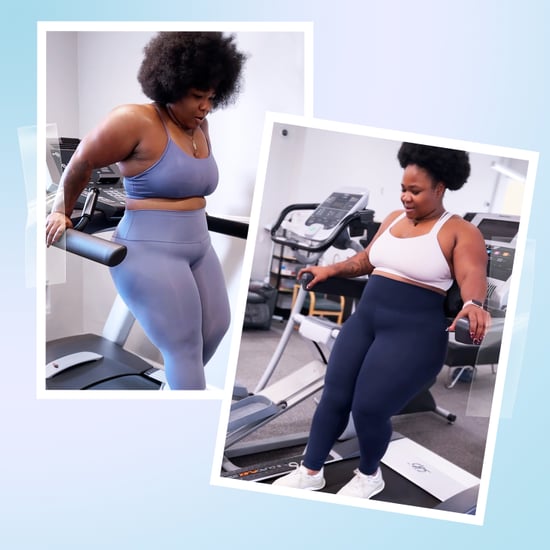Wrist Exercises To Help Prevent Pain From Typing
Tackle Typing Pain at Work with These Easy Wrist Exercises

Marathon typing sessions, whether you're plowing through hundreds of unanswered emails after a few days PTO or quickly typing up that final paper, can be seriously stressful — especially for your wrists.
But, why is that? According to Gary Johnson, MSOT, OTR/L, MBA, Athletico Physical Therapy occupational therapist, it could have to do with putting pressure on the carpal tunnel, which is a narrow passage at the base of the palm that consists of small carpal bones of the wrist and a ligament on the palm side. The word "tunnel" makes more sense now, huh?
"Within this narrow passage, there are nine tendons that are responsible for flexion of the fingers and the median nerve," Johnson explains. "The median nerve is responsible for the sensation of your thumb, index finger, middle finger, and half of your ring finger. With added pressure and/or compression, as well as repetitive movement to this area, the median nerve can become compressed, creating altered sensation throughout those fingers supplied by the nerve."
This sensation, Johnson says, can manifest as numbness and tingling, to even pain throughout the hand.
Taking regular breaks from typing, stretching, and moving your wrists, fingers, and elbows can help alleviate some of the discomfort, Johnson says.
Sometimes the set up of your desk is actually the root of the problem. Johnson notes that an occupational therapist or a certified hand therapist who specialises in workstation ergonomic assessments can actually review if your desk is ergonomically friendly and make changes as needed — i.e. adjusting the height of your monitor, chair, and keyboard, or switching you to an ergo mouse.
Performing wrist and finger exercises, like the moves Johnson outlined below, is another way to help reduce and prevent pain. However, if you're dealing with consistent pain, it's always best to receive a personalized assessment and treatment plan.
Tendon Gliding Exercises:
- Start with your fingers straight up and bend the top two joints down so your fingernails are pointing toward your palm.
- Second, roll your fingers down to make a full "punching fist," ensuring each finger joint is bent.
- Next, with your knuckles still bent, lift your fingers out as if you are pointing, but at a 90 degree angle at your knuckles — the "L" position.
- Finally, from the "L" position, bend your fingers down from your middle joints, making a finger-to-palm position or a straight finger fist.
- Complete 10 times, two to three times a day.
Median Nerve Glides:
- Start with a fist, looking at the side of your hand.
- Open hand so that fingers are extended.
- Still looking at the side of the hand, slightly extend wrist back.
- Turn palm to facing body and extend thumb and supinate forearm, and lightly grab and stretch thumb towards floor.
- Repeat steps five times, two to three times a day.
Wrist AROM (Active Range of Motion) Exercises:
- Bend elbows at 90 degrees and thumbs are facing the ceiling (palms looking at each other).
- Flex and extend wrist (back and forth or side to side).
- Ulnar and radially deviate wrist (move wrist up and down).
Complete wrist circles.
- Perform two to three sets of 10 repetitions each, two to three times a day.
Forearm AROM Exercises:
- Pronate and supinate (rotate palm up and palm down with elbow bent at 90 degrees at side).
- Perform two to three sets of 10 repetitions each, two to three times a day.
Elbow AROM Exercises:
- Flex and extend (bend up and bend down) elbow through full range of motion.
- Perform two to three sets of 10 repetitions, two to three times a day.
Wrist Stretches:
- With your elbow bent at the side and thumb facing ceiling, lightly bend wrist into a flexed position and hold for 15 seconds.
- Complete five stretches.
- Next, with elbow bent and palm facing floor, stretch the wrist back into extension and hold for 10 to 15 seconds, completing five stretches.
- Or, press palms into each other like in a praying manner and slowly bring your hands down stretching your wrists into extension. This is known as the "prayer stretch."
Click here for more health and wellness stories, tips, and news.




